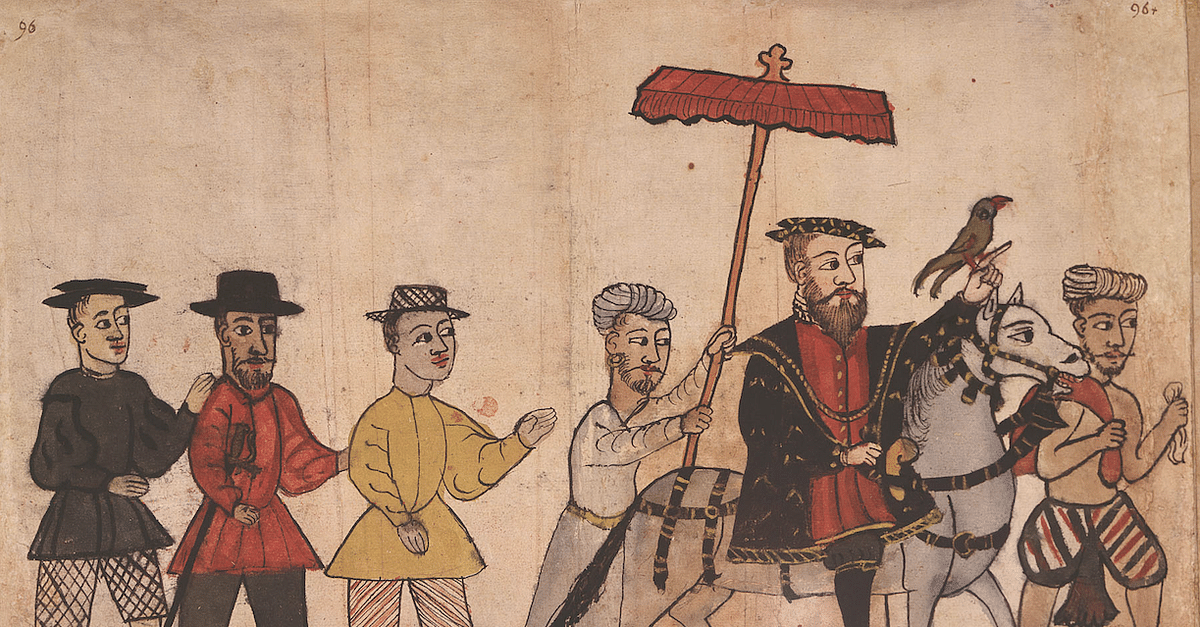The surrender of Portuguese territories to the Dutch East India Company (VOC) is a chapter in history marked by intricate geopolitical dynamics, economic interests, and military strategies. This article delves into the reasons behind the Portuguese surrender to the Situs Slot Gacor, examining the historical context that led to this pivotal event.
1. Maritime Dominance and VOC’s Ascent:
Contents
- 0.1 1. Maritime Dominance and VOC’s Ascent:
- 0.2 2. Economic Rivalries and Trade Routes:
- 0.3 3. Portuguese Decline and VOC Expansion:
- 0.4 4. Local Alliances and Political Intrigues:
- 0.5 5. Siege Tactics and Military Confrontations:
- 0.6 6. Economic Pressures and Financial Strains:
- 0.7 7. Changing Global Dynamics:
- 0.8 8. Treaty of The Hague (1661):
- 0.9 9. Legacy of the Surrender:
- 1 The VOC’s Seizure of Indonesia from the Surrender of Portuguese: A Strategic Maritime Triumph
- 1.1 1. Spice Trade and Economic Interests:
- 1.2 2. VOC’s Maritime Dominance:
- 1.3 3. Surrender of Portuguese Decline and VOC’s Ascendancy:
- 1.4 4. Military Campaigns and Siege Tactics:
- 1.5 5. Control of Key Trading Posts:
- 1.6 6. Diplomacy and Local Alliances:
- 1.7 7. The Importance of Batavia (Present-Day Jakarta):
- 1.8 8. The Treaty of The Hague (1661):
- 1.9 9. Economic Exploitation and Plantation System:
- 1.10 10. Legacy and Impact:
- 2 Author
In the 17th century, the Dutch VOC emerged as a formidable maritime power, challenging the dominance of the Portuguese in the Indian Ocean. The VOC’s powerful navy and trading prowess created an environment where the Portuguese position was increasingly precarious.

2. Economic Rivalries and Trade Routes:
Surrender of Portuguese, Control over lucrative spice trade routes was a primary motivator for both the Portuguese and th e VOC. As the VOC sought to expand its influence in the East Indies, clashes over trade routes and access to key markets intensified, prompting strategic decisions by both powers .
3. Portuguese Decline and VOC Expansion:
The decline of the Portuguese Empire was evident during the 17th century, marked by economic difficulties and military setbacks. Meanwhile, Surrender of Portuguese the VOC experienced a period of expansion, establishing strongholds and trade networks throughout the East Indies, challenging Portuguese dominance.
4. Local Alliances and Political Intrigues:
Both the Portuguese and the VOC sought local alliances to strengthen their positions. Political intrigues, alliances with indigenous rulers, and manipulation of regional politics played a crucial role in determining the outcome of conflicts in the Indian Ocean.
5. Siege Tactics and Military Confrontations:
Military confrontations and siege tactics were pivotal in the struggle for control over key territories. Notable events like the Siege of Malacca in 1640, where the VOC successfully ousted the Portuguese, demonstrated the military prowess of the Dutch company.
6. Economic Pressures and Financial Strains:
The economic pressure faced by the Portuguese, coupled with financial strains on their empire, weakened their ability to resist the VOC’s advances. The VOC’s well-established economic machinery and efficient financial structures contributed to their sustained military campaigns Surrender of Portuguese.
7. Changing Global Dynamics:
The global geopolitical landscape was evolving during this period. The emergence of new colonial powers and shifts in alliances influenced the strategies and decisions of both the Portuguese and the VOC, contributing to the surrender of Portuguese territories.
8. Treaty of The Hague (1661):
The Treaty of The Hague in 1661 formalized the transfer of several Portuguese territories to the Dutch, including Malacca and Ceylon. This diplomatic agreement reflected the changing power dynamics and acknowledged the VOC’s growing influence in the region.

9. Legacy of the Surrender:
The surrender of Portuguese territories to the VOC had lasting implications for the balance of power in the Indian Ocean. It marked a significant chapter in the history of European colonialism, influencing trade routes, cultural exchanges, and the shaping of regional geopolitics.
The surrender of Portuguese territories to the VOC was a multifaceted outcome influenced by economic interests, military strategies, and changing global dynamics. Understanding this historical event requires a nuanced exploration of the complex interactions between colonial powers during the 17th century, shedding light on the intricate tapestry of maritime history.
The VOC’s Seizure of Indonesia from the Surrender of Portuguese: A Strategic Maritime Triumph
The 17th century witnessed a fierce struggle for dominance in the lucrative spice trade routes of Southeast Asia. The Dutch East India Company (VOC) played a pivotal role in this geopolitical contest, culminating in the seizure of Indonesia from the Portuguese. This article explores the strategic motivations behind the VOC’s actions and the factors that led to their triumph over Portuguese control.
1. Spice Trade and Economic Interests:
Spices, particularly nutmeg, cloves, and pepper, were highly coveted commodities during the Age of Exploration. Indonesia, known as the “Spice Islands,” held a virtual monopoly on these valuable resources. The VOC, driven by economic interests, sought to control and monopolize the spice trade to enhance Dutch economic prosperity.
2. VOC’s Maritime Dominance:
Surrender of Portuguese, The VOC had established itself as a formidable maritime force by the 17th century. With a powerful fleet and well-organized trade infrastructure, the Dutch were positioned to challenge the Portuguese dominance in the Indian Ocean and Southeast Asian waters.
3. Surrender of Portuguese Decline and VOC’s Ascendancy:
The Portuguese Empire, once a dominant force in the region, faced a decline during the 17th century. Concurrently, the VOC experienced a period of ascendancy, marked by efficient management, financial stability, and strategic acquisitions. This shift in power dynamics set the stage for the VOC’s bold moves in Indonesia.
4. Military Campaigns and Siege Tactics:
Surrender of Portuguese, The VOC employed military campaigns and siege tactics to weaken Portuguese strongholds in Indonesia. The capture of strategic locations, such as Malacca in 1641, demonstrated the Dutch military’s prowess and marked a turning point in the struggle for control over the region.
5. Control of Key Trading Posts:
To establish dominance in the spice trade, the VOC strategically targeted and gained control of key Portuguese trading posts and forts across the Indonesian archipelago. This allowed the Dutch to dictate terms in the lucrative spice commerce.
6. Diplomacy and Local Alliances:
Dutch success in Indonesia was not solely reliant on military might; diplomatic maneuvering played a crucial role. The VOC formed alliances with local rulers and indigenous communities, leveraging these relationships to strengthen their position and weaken Portuguese influence.
7. The Importance of Batavia (Present-Day Jakarta):
Batavia emerged as the nerve center of the VOC’s operations in Southeast Asia. The strategic location of Batavia provided the Dutch with a centralized base for trade, administration, and military control, further solidifying their dominance in the region.
8. The Treaty of The Hague (1661):
The Treaty of The Hague formalized the transfer of key Portuguese territories to the Dutch, including Malacca and Ceylon. This diplomatic agreement reflected the geopolitical realities and acknowledged the VOC’s successful usurpation of Portuguese influence.
9. Economic Exploitation and Plantation System:
The Dutch implemented an economic exploitation model in Indonesia, establishing a plantation system that facilitated the cultivation of cash crops, including spices and coffee. This economic structure contributed to the VOC’s sustained control over the region.

10. Legacy and Impact:
The VOC’s seizure of Indonesia from the Portuguese had far-reaching consequences. It marked the beginning of Dutch colonial rule in the archipelago, shaping Indonesia’s trajectory for centuries to come. The economic and geopolitical transformations laid the foundation for the Dutch East Indies and left an enduring legacy in the region’s history Surrender of Portuguese.
The VOC’s strategic maneuvers in seizing Indonesia from the Portuguese were fueled by economic interests, military prowess, and diplomatic finesse. This chapter in maritime history exemplifies the complexity of colonial rivalries and the enduring impact of these power struggles on the destinies of nations Surrender of Portuguese.
Read More Article About “Carl Weathers: Remembering the Legendary Apollo Creed and His Enduring Legacy.“


















